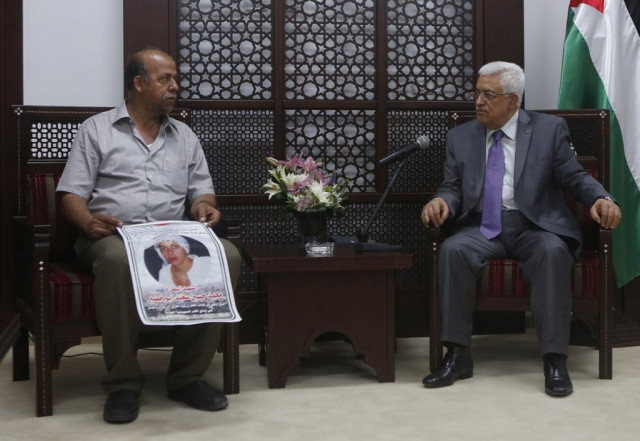Three Israelis admit teen murder as Gaza toll rises to 8
Israeli prime minister and president called teenager's father to convey condolences and express outrage over murder.

Three Israelis admit teen murder as Gaza toll rises to 8
As police struggled to contain five days of violent clashes in annexed east Jerusalem and in Arab towns across Israel, tensions were further raised by a series of Israeli air strikes on Gaza, which killed several Palestinian militants.
It was the worst bloodshed since the start of the current round of violence in and around Gaza, raising fears of a fresh confrontation between Israelis and Palestinians in the coastal enclave.
The latest violence in Gaza began after June 12 as Israel pressed a vast West Bank arrest campaign to find militants behind the kidnap and murder of three Israeli teenagers, whose bodies were found on June 30.
Two days later, a 16-year-old Palestinian from east Jerusalem was kidnapped and killed in a suspected revenge attack, with police arresting six Jewish extremists, three of them minors.
During their investigation, three of the suspects admitted to the murder in which the victim was burned alive, an official close to the investigation told AFP.
"Three out of six suspects in custody have confessed to the murder and burning of Mohammed Abu Khder, and performed a re-enactment of the crime," the source said, speaking on condition of anonymity.
The murder has sparked shock and outrage, and no small measure of shame in Israel.
"To take a young boy, to kill him, to burn him - what for?" asked outgoing President Shimon Peres.
Prime Minister Benjamin Netanyahu and Peres called the teenager's father to convey condolences and express outrage over the murder.
"I am ashamed on behalf of my nation and grieve with you," Peres said, according to a statement, with Netanyahu condemning the murder as "abhorrent."
Meanwhile, medics retrieved a body from a tunnel near the southern city of Rafah, saying it brought the death toll from overnight Israeli air strikes to eight.
But although Israel's army announced carrying out a number of strikes, it denied responsibility for the collapsed tunnel, saying militants had blown themselves up with their own explosives.
Two of the militants were from the Popular Resistance Committees, while the other six from the armed wing of Hamas, which Israel blames for the murder of the three teenagers.
The army confirmed hitting 14 targets overnight, and said militants had fired an anti-tank missile at an army patrol by the border fence, causing no injuries.
Rocket fire continued into Monday evening, with some 50 projectiles hitting southern Israel since midnight, and warplanes carried out more strikes on Gaza, causing no casualties.
Israeli army spokesperson Lieutenant Colonel Peter Lerner said the military mobilised several hundred reserve troops near the border with Gaza in case of a "deterioration" after the militants' deaths.
The army has stressed its reinforcements are purely a defensive move, but Lerner said that two combat brigades were on stand by if needed.
So far, Israel's response to the rocket fire has been relatively measured, with Netanyahu resisting calls from cabinet hardliners for a major operation in Gaza.
The premier was convening a security cabinet meeting Monday evening.
Meanwhile Foreign Minister Avigdor Lieberman, head of the rightwing nationalist Yisrael Beitenu party, said he was ending his party's 20-month alliance with Netanyahu's Likud over its handling of the Gaza crisis.
Lieberman's faction is to remain in the governing coalition but his party's divorce from the Likud was expected to give it greater freedom of action in parliament.
Overnight, the angry protests which have gripped east Jerusalem and Arab Israeli towns continued to spread, with police arresting 110 people for throwing stones, damaging property and interfering with police work.
Much of the violence began in the Triangle, a concentration of Arab towns and villages close to the border with the northern West Bank, but has since spread to the Galilee region as well as to the southern Negev desert.



















COMMENTS
Comments are moderated and generally will be posted if they are on-topic and not abusive.
For more information, please see our Comments FAQ